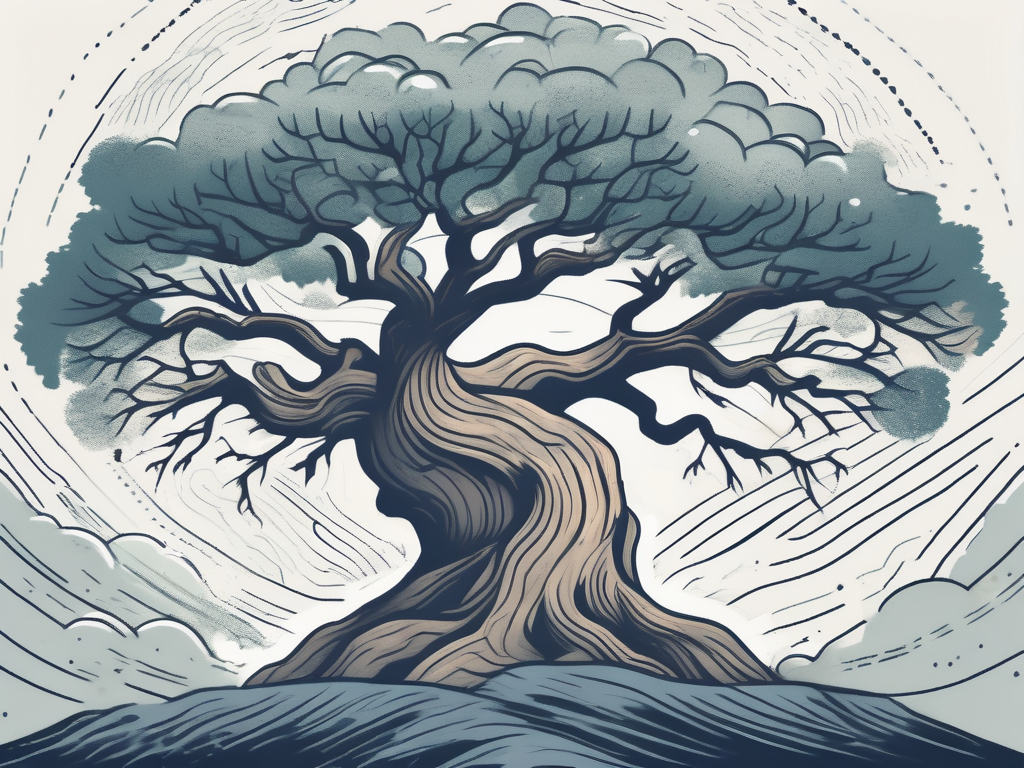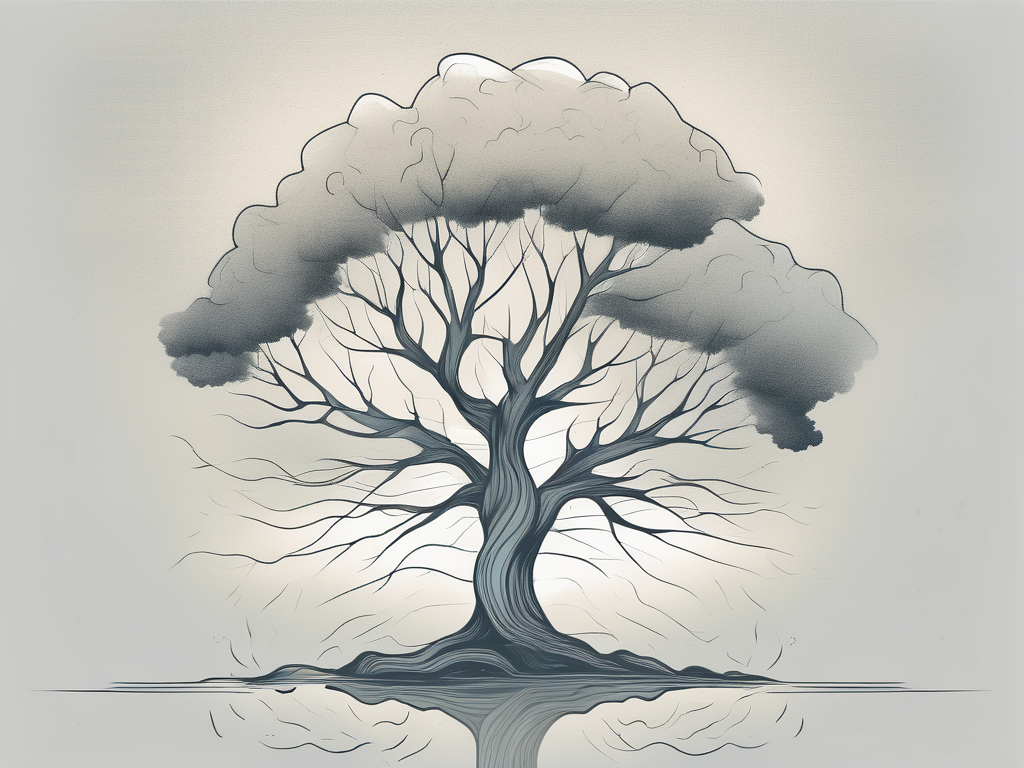Stoicism is an ancient philosophy that offers practical wisdom for modern times. It is a philosophy of inner strength and resilience, teaching us how to navigate life’s challenges with grace and composure. By understanding and embracing stoicism, men can develop a mindset that empowers them to face adversity with courage and dignity. In this guide, we will explore the principles of stoicism and provide practical steps for cultivating inner strength and resilience in everyday life.
Understanding Stoicism: A Brief History
Before diving into the practical aspects of stoicism, it is important to understand its origins and core principles. Stoicism, a philosophy that has stood the test of time, was founded in ancient Greece by a philosopher named Zeno of Citium. Born in Cyprus, Zeno moved to Athens where he began teaching his philosophical ideas in a painted colonnade called the Stoa Poikile, which is where the name “stoicism” originated.
As stoicism gained popularity, it was expanded upon by influential stoic philosophers such as Epictetus, Seneca, and Marcus Aurelius. Epictetus, a former slave, faced adversity and hardship throughout his life, which shaped his stoic teachings. Seneca, a prominent Roman statesman, was known for his eloquent writings on stoicism, which emphasized the power of virtue and leading a life aligned with nature. Marcus Aurelius, the Roman Emperor, wrote extensively about the importance of humility and self-reflection, providing valuable insights into stoic principles.
The philosophy of stoicism centers around the belief that we cannot control external events, but we have complete control over our own thoughts and actions. Stoics believe that true happiness and fulfillment come from within, rather than relying on external circumstances. This philosophy encourages individuals to focus on what is within their control and let go of what is not. By accepting this fundamental principle of stoicism, we can free ourselves from unnecessary suffering and find inner peace.
The Philosophy of Stoicism: Embracing What is Within Our Control
At the core of stoicism is the notion that we should focus on what is within our control and let go of what is not. This can be a challenging concept to embrace, as it requires a shift in mindset and perspective. However, by practicing stoic principles, we can cultivate a sense of tranquility and resilience in the face of life’s challenges.
Stoicism teaches us to recognize that external events are beyond our control. We cannot control the actions of others, the weather, or the outcome of certain situations. However, we have complete control over our own thoughts, emotions, and actions. By directing our focus inward, we can develop a sense of self-mastery and become less affected by external circumstances.
By embracing what is within our control, we can make conscious choices that align with our values and principles. Stoicism encourages us to cultivate virtues such as wisdom, courage, temperance, and justice. By practicing self-discipline and focusing on our own thoughts and actions, we can lead a more virtuous and fulfilling life.
Key Stoic Philosophers and Their Teachings: Insights for Modern Life
Stoicism is a rich philosophy that offers valuable insights into how to live a good and meaningful life. The teachings of stoic philosophers continue to resonate with individuals seeking guidance in navigating the complexities of the modern world.
Epictetus, known for his practical approach to stoicism, emphasized the importance of practicing self-discipline and focusing on our own thoughts and actions. He believed that by recognizing what is within our control and what is not, we can free ourselves from unnecessary suffering and find true inner peace.
Seneca, a prominent stoic philosopher and advisor to the Roman Emperor, believed in the power of virtue and leading a life aligned with nature. He emphasized the importance of cultivating wisdom, courage, and justice, and believed that true happiness can be found by living in accordance with these virtues.
Marcus Aurelius, the Roman Emperor and stoic philosopher, wrote extensively about the importance of humility and self-reflection. His writings, known as “Meditations,” provide valuable insights into stoic principles and offer guidance on how to navigate the challenges of life with grace and integrity.
By studying the teachings of these stoic philosophers, we can gain a deeper understanding of stoicism and apply their wisdom to our own lives. Stoicism offers a timeless philosophy that can help us navigate the complexities of the modern world and find inner peace amidst the chaos.
The Stoic Mindset: Embracing Inner Strength
One of the key tenets of stoicism is the understanding that our perception shapes our reality. The way we perceive and interpret events can greatly impact our emotional well-being and resilience. By cultivating a stoic mindset, we can train ourselves to view challenges as opportunities for growth and transformation.
In the stoic philosophy, perception plays a crucial role in how we experience the world around us. It is believed that our perceptions can often be biased or distorted, leading to unnecessary emotional turmoil. By questioning and examining our perceptions, we can gain clarity and free ourselves from the grip of negative emotions.
Imagine a situation where you receive criticism from a colleague at work. Without a stoic mindset, this criticism might trigger feelings of anger, defensiveness, or self-doubt. However, by applying stoic principles, you can reframe your perception of the situation. Instead of viewing the criticism as a personal attack, you can see it as an opportunity for growth and improvement. This shift in perception allows you to respond to the criticism in a more constructive and balanced manner.
The Role of Perception in Stoicism
Stoics believe that our perceptions can often be biased or distorted, leading to unnecessary emotional turmoil. By questioning and examining our perceptions, we can gain clarity and free ourselves from the grip of negative emotions. This practice of cognitive reframing allows us to see reality as it truly is, enabling us to respond to adversity in a more effective and balanced manner.
When faced with a difficult situation, a stoic individual would take a step back and analyze their initial perception. They would ask themselves if their interpretation of the event is accurate or if it is clouded by personal biases or preconceived notions. By engaging in this self-reflection, stoics can gain a deeper understanding of the situation and avoid falling into the trap of unnecessary emotional distress.
Moreover, stoics believe that our perceptions are not fixed or absolute. They can be shaped and molded through deliberate practice. By consistently challenging our perceptions and seeking alternative viewpoints, we can develop a more objective and nuanced understanding of the world. This ability to see reality as it truly is allows us to navigate through life’s challenges with greater clarity and resilience.
The Power of Acceptance
Another important aspect of the stoic mindset is the practice of acceptance. Stoics understand that certain events are beyond our control, and the only thing we can control is our response to those events. By accepting the things we cannot change, we can focus our energy on what is within our control and make the most of any situation.
Imagine you are caught in a traffic jam on your way to an important meeting. Without a stoic mindset, you might feel frustrated, stressed, and anxious about being late. However, by embracing the power of acceptance, you can choose to let go of the things you cannot control. Instead of dwelling on the traffic jam, you can focus on finding alternative routes or using the extra time to prepare for the meeting. This shift in mindset allows you to maintain your inner peace and make the most of an otherwise frustrating situation.
Acceptance does not mean passivity or resignation. It is about acknowledging the reality of a situation and taking proactive steps to respond effectively. Stoics understand that by accepting the things we cannot change, we can redirect our energy towards what is within our control and make a positive impact on our lives and the lives of others.
Building Resilience: The Stoic Way
Resilience is the ability to bounce back from adversity and continue moving forward. In today’s fast-paced and unpredictable world, building resilience has become more important than ever. Fortunately, Stoicism provides powerful tools and practices for building emotional and mental resilience.
Stoicism, an ancient philosophy developed in Greece, emphasizes the importance of living in accordance with nature and accepting the things we cannot control. By adopting a stoic mindset, individuals can develop the resilience needed to navigate life’s challenges.
Developing Emotional Resilience
Emotional resilience is the ability to adapt and cope with emotions in a healthy and constructive way. Stoics teach us that emotions are natural and should not be suppressed or ignored. However, by practicing emotional detachment and maintaining a calm and rational mindset, we can prevent our emotions from controlling our actions.
One technique Stoics use to develop emotional resilience is negative visualization. By imagining worst-case scenarios and reflecting on how we would handle them, we can prepare ourselves mentally and emotionally for potential challenges. This practice allows us to develop a sense of equanimity and resilience, enabling us to face difficult situations with composure and clarity.
Furthermore, Stoics encourage individuals to focus on what is within their control rather than dwelling on external circumstances. By shifting our attention to our thoughts, attitudes, and actions, we can cultivate emotional resilience and maintain a sense of inner peace, regardless of the challenges we face.
Cultivating Mental Toughness
Mental toughness is the ability to persevere and stay focused in the face of challenges and setbacks. Stoics believe that by embracing difficulties and viewing them as opportunities for growth, we can develop mental fortitude. This mindset shift allows us to approach obstacles with a sense of determination and resilience.
Stoics also emphasize the importance of self-discipline in cultivating mental toughness. By practicing self-control and resisting immediate gratification, individuals can strengthen their willpower and develop the resilience needed to overcome obstacles.
Another practice that Stoics advocate for cultivating mental toughness is the voluntary embrace of discomfort. By intentionally exposing ourselves to challenging situations and pushing our limits, we can expand our comfort zones and develop the mental resilience necessary to thrive in the face of adversity.
Moreover, Stoics encourage individuals to maintain a positive mindset and focus on the present moment. By cultivating gratitude and finding joy in the simple pleasures of life, we can develop a resilient mindset that allows us to navigate challenges with optimism and determination.
In conclusion, Stoicism offers valuable insights and practices for building emotional and mental resilience. By adopting a stoic mindset, individuals can develop the resilience needed to face life’s challenges head-on. Whether it is developing emotional resilience through emotional detachment or cultivating mental toughness through self-discipline and embracing discomfort, Stoicism provides a roadmap for building resilience in an ever-changing world.
Stoicism in Everyday Life
Stoicism is not just a theoretical philosophy; it is a practical philosophy that can be applied to everyday life. By integrating stoic principles into our daily routines, we can enhance our well-being and cultivate inner strength.
Applying Stoic Principles in Modern Times
In our fast-paced and chaotic world, stoic principles can provide a guiding light. By practicing mindfulness, focusing on what is within our control, and embracing the present moment, we can navigate the challenges of modern life with grace and resilience.
Stoicism and Relationships
Stoic philosophy offers valuable insights into how to cultivate healthy and fulfilling relationships. By practicing empathy, embracing vulnerability, and focusing on virtues such as kindness and compassion, we can build deep and meaningful connections with others.
The Path to Becoming a Stoic Man
Becoming a stoic man is a journey that requires dedication and practice. While stoicism may seem daunting at first, it is a philosophy that can be integrated into our lives gradually.
Practical Steps to Embrace Stoicism
Start by cultivating self-awareness and observing your thoughts and emotions. Notice any patterns or recurring negative thought processes that may be holding you back. Practice questioning and reframing these thoughts, focusing on what is within your control and accepting what is not.
Additionally, seek out stoic literature and teachings. Dive into the works of stoic philosophers such as Epictetus, Seneca, and Marcus Aurelius. Their writings offer timeless wisdom and practical guidance for living a stoic life.
Overcoming Challenges on the Stoic Journey
As with any journey, the path to becoming a stoic man will have its fair share of challenges and setbacks. It is important to approach these obstacles with resilience and perseverance. Remember that setbacks are opportunities for growth and that true strength lies in our ability to bounce back and continue moving forward.
In conclusion, stoicism is a philosophy that offers men a guide to cultivating inner strength and resilience. By understanding and embracing stoic principles, men can navigate life’s challenges with grace and composure. By adopting a stoic mindset, focusing on what is within their control, and practicing emotional and mental resilience, men can become stoic men and live a life of fulfillment and tranquility.












